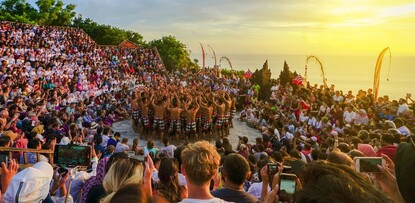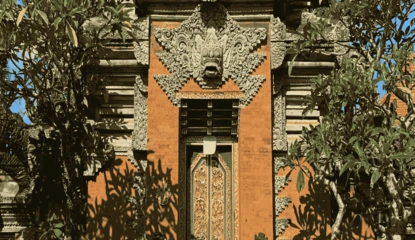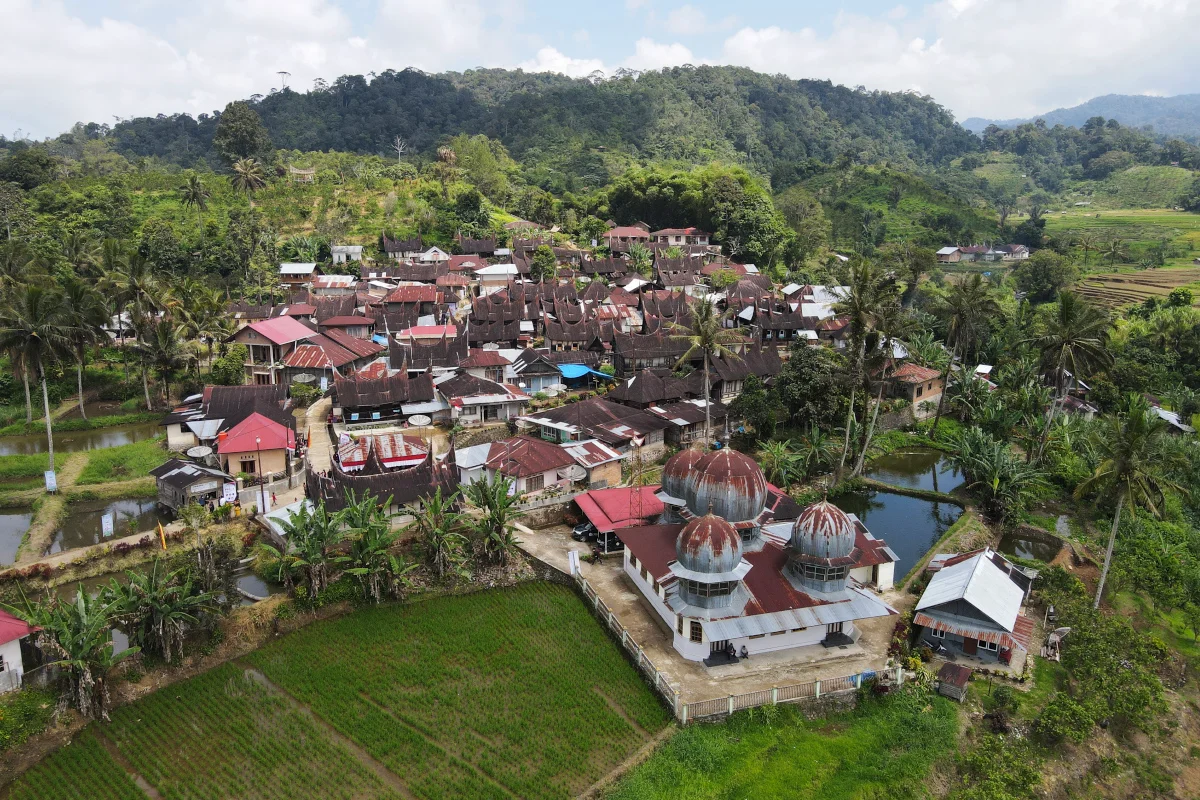Aceh Province, located in the northernmost region of Indonesia, is celebrated for its rich cultural heritage and deep Islamic roots. Among its many treasured traditions, Kenduri, or communal feasting, holds a central place in the lives of the Acehnese people. More than just a shared meal, Kenduri embodies values of gratitude, unity, and social harmony, serving as a way to commemorate life events, religious occasions, and communal milestones. Even in modern times, Kenduri remains a vital tradition, symbolizing the spiritual and communal bonds that define Acehnese culture.
What Is Kenduri?
In Acehnese culture, Kenduri refers to a communal gathering where people come together to pray, share meals, and celebrate or honor significant events. Rooted in Islamic traditions, Kenduri often includes Qur’anic recitations, prayers, and supplications to seek blessings, express gratitude to Allah, and foster community togetherness.
At its core, Kenduri is a reflection of gratitude, a celebration of togetherness, and a means of involving the entire community in important cultural and social milestones.
Occasions for Kenduri
Kenduri is a versatile tradition, performed on a wide range of occasions that are both personal and communal. Key events include:
1. Religious Celebrations
- Ramadan and Eid (Meugang): Before the holy fasting month of Ramadan and the joyous Eid celebrations, traditional meat feasts are prepared and shared with family, friends, and the community.
- Maulid Nabi: Kenduri is organized to celebrate the birthday of the Prophet Muhammad, featuring prayers, Qur’anic recitations, and shared meals.
2. Life Events
- Kenduri marks major life milestones, such as births, weddings (Kenduri Perkahwinan), circumcisions (Sunnat Rasul), or housewarmings, allowing the community to celebrate together.
3. Agricultural Seasons (Kenduri Blang)
- Agriculture, particularly rice farming, is central to Acehnese livelihoods. During Kenduri Blang, farmers hold communal prayers and feasts to seek blessings for a successful planting or harvest season.
4. Memorial Events
- Kenduri is performed in memory of deceased loved ones, often on anniversaries or after funerals, as a way for families and communities to collectively pray for the departed.
5. Academic Achievements
- Kenduri celebrates milestones like graduations or professional achievements, expressing gratitude to Allah and joy for success.
6. Natural Disasters
- During or after natural disasters or challenging times, Kenduri serves as a spiritual gathering to seek Allah’s guidance and protection, while fostering emotional solidarity within the community.
Rituals and Processes in Kenduri
While the specifics of Kenduri may vary depending on the occasion and region, the event typically follows a structured process:
1. Preparation of Food
- Sharing food is central to Kenduri. Families prepare traditional Acehnese dishes such as Rendang, Kuah Beulangong (a rich curry stew), and other hearty meals using local spices and fresh ingredients.
- Meat, particularly beef or goat, is a key component. In some cases, a symbolic Halal Qurbani (animal sacrifice) is performed, with the meat distributed among families and the less fortunate.
2. Inviting the Community
- Kenduri emphasizes inclusivity, with invitations extended to the local community, friends, and extended family. Invitations are often informal, and attending is seen as a gesture of goodwill and shared responsibility.
3. Spiritual Component
- The event begins with Doa (prayers) or Dikir (Islamic devotional chants). A religious scholar, imam, or elder leads the gathering in Qur’anic recitations, blessings, and supplications to seek Allah’s favor for prosperity, health, and protection.
4. Communal Feast
- Attendees share a meal in a warm and welcoming environment. The communal feast is both a celebration and an acknowledgment of mutual support within the community.
- Generosity is a key value, with leftover food often distributed among attendees to take home.
5. Closing (Doa Penutup)
- The ceremony concludes with a closing prayer, after which guests express gratitude to their hosts. The event reinforces community bonds and leaves participants with a renewed sense of solidarity.
Cultural and Religious Significance
Kenduri is far more than a communal meal; it embodies profound cultural and religious values that resonate deeply with Acehnese identity.
1. Islamic Values
Kenduri reflects the core Islamic teachings of charity, generosity, and communal responsibility. Sharing food and extending invitations to others exemplify the Quranic ideals of mutual care and support within the Ummah (Muslim community). The act of giving during Kenduri reinforces the spiritual obligation to help others and strengthens the bonds of faith.
2. Social Unity
As a communal tradition, Kenduri strengthens relationships among neighbors, families, and the wider society. It serves as a platform for restoring bonds, offering emotional support, and maintaining communal harmony. In a world where individualism is on the rise, Kenduri remains a vital practice for fostering togetherness and mutual understanding.
3. Gratitude and Blessings
The prayers recited during Kenduri are expressions of gratitude to Allah and a means of seeking blessings for prosperity, health, and success. This unique combination of the physical act of food-sharing and the spiritual act of prayer highlights the interconnectedness of material and spiritual well-being in Acehnese culture.
4. Cultural Identity
The dishes prepared for Kenduri reflect the rich culinary heritage of Aceh, incorporating traditional recipes and local flavors. By including Acehnese cuisine in the ceremony, Kenduri helps preserve the region’s gastronomic diversity and cultural identity. The ceremonial elements, combined with the sharing of culturally significant food, reinforce the pride Acehnese people take in their traditions.
5. Sense of Shared Responsibility
Kenduri is a collective effort that underscores the shared responsibility within Acehnese society. Families and community members work together to prepare meals, support the hosts, and ensure the event’s success. Attendees often contribute resources or assist in the preparations, fostering a sense of unity and cooperation. This collaborative spirit reflects the broader societal values of helping one another and maintaining solidarity.
Modern-Day Relevance of Kenduri
In today’s rapidly changing world, Kenduri remains a resilient and meaningful tradition in Aceh. Even as lifestyles evolve, younger generations recognize the importance of Kenduri as a way to honor their faith and cultural heritage.
Communities have adapted the practice to fit modern circumstances. For instance, smaller-scale Kenduri gatherings are now common in urban areas or among families living away from rural communities. While the scale may vary, the essence of Kenduri—unity, gratitude, and spirituality—remains intact.
Despite the pressures of modernization and increasing individualism, the values Kenduri represents are timeless. The principles of charity, unity, gratitude, and a deep connection to faith continue to resonate, ensuring that Kenduri remains a cornerstone of Acehnese culture and identity for generations to come.









